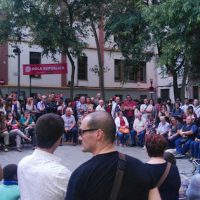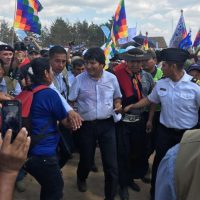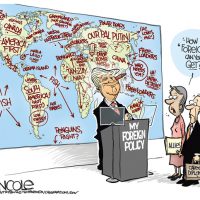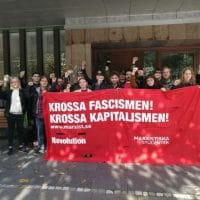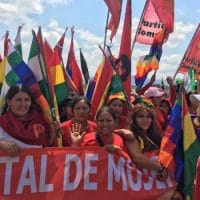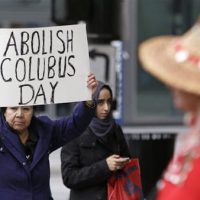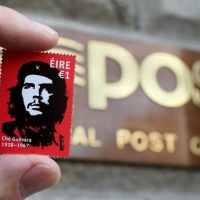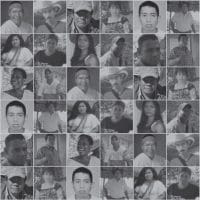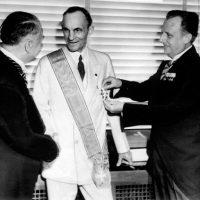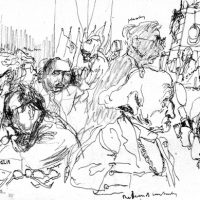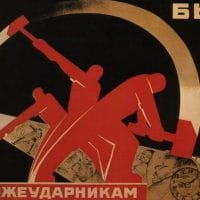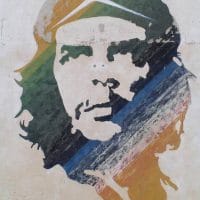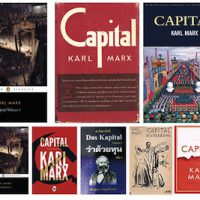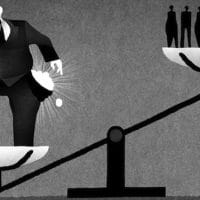-
Spanish state to Catalonia: “Surrender or we’ll take you over”
Catalonia’s Premier Carles Puigdemont officially declared an independent Catalan republic on October 10, only to announce the immediate suspension of independence to allow for negotiations with the conservative Spanish People’s Party (PP) government of Prime Minister Mariano Rajoy. The declaration of independence formalised the result of the October 1 referendum held under extreme police repression: in it 90% of those voting (43% of the electorate) said ‘Yes’ to independence.
-
The crisis in Puerto Rico is a racial issue, here’s why
Last week, CNN’s Jake Tapper interviewed Sen. Bernie Sanders (I-Vt.) and asked if he thought President Donald Trump’s punishing response to hurricane-ravaged Puerto Rico had something to do with “race or ethnicity.” Sanders hesitated a bit but ultimately said, “We have a right to be suspect.”
-
Chavistas take 17 of 23 states in Venezuelan Regional Elections as opposition cries fraud
The United Socialist Party of Venezuela won 54 percent of the total vote, marking a significant recovery since the ruling party’s landslide defeat in 2015 parliamentary elections when it garnered only 43.7 percent of the vote.
-
Building on the legacy of socialism
For LeBlanc socialism is inseparable from both political and economic democracy, and it follows that the continuous development of revolutionary theory and struggle is essential.
-
A true spat-upon soldier story
The long-awaited The Vietnam War documentary by Ken Burns and Lynn Novick has arrived. It is powerful and moving, disturbing, enlightening, and challenging. But it is not without its omissions and distortions.
-
Challenging U.S. Foreign policy toward North Korea
It is an understatement to say that relations between the US and North Korea are very tense—the US government continues to threaten to further tighten economic sanctions on North Korea and launch a military attack to destroy the country’s missiles and nuclear weapons infrastructure. And the North for its part has said it would respond to any attack with its own strikes against US bases in the region and even the US itself.
-
Massive demonstration shuts down the Nazis
On 30 September, a unified chant could be heard from Göteborg’s Korsvägen: “no Nazis on our streets!” Around 20,000 protesters congregated to oppose the fascist sect NMR, who were staging a demonstration to flex their muscles. By the end of the day, the anti-fascist movement stopped the NMR’s demonstration in Göteborg and even the fascists complained publicly that the day was a “victory for [their] opponents”.
-
Evo Morales homages Che Guevara
Last October 8, 50 years after the murder of Che Guevara, thousands of people who vindicate his legacy of struggle arrived in La Higuera, Vallegrande, where the Argentine-Cuban guerrilla was captured and later assassinated.
-
Christopher Columbus
A New York Times article, following the white supremacist demonstrations in Charlottesville, Virginia, and the murder of anti-racist activist Heather Heyer, described the growing calls to remove monuments that celebrate the Confederacy. The article went on to cite some who balk, however, when “the symbolism is far murkier, like Christopher Columbus.”
-
Che Guevara stamp sells out first run in ‘unprecedented’ public demand
THE Che Guevara stamp produced by An Post to mark the 50th anniversary of the Latin American freedom fighter’s murder on 9 October 1967 by CIA-backed Bolivian state forces has sold out its initial 120,000 print run.
-
Capitalism’s moral maze
Life as a consumer is very different to what we’re told.
-
Criminalizing environmental activism
Berta Cáceres, assassinated in her home on March 3, 2016, was just one of hundreds of Latin American environmental activists attacked in recent years. At least 577 environmental human rights defenders (EHRDs) were killed in Latin America between 2010 and 2015—more than in any other region—as documented by Global Witness.
-
How American racism shaped nazism
Depending on the reader’s perspective, Whitman’s central argument seems either modest or bold, as he claims, “What all this research unmistakably reveals is that the Nazis did find precedents and parallels and inspirations in the United States” (10). The most radical Nazis were often the most enthused about American legal precedents. More moderate, less anti-Semitic members of the Nazi Party tended to be more skeptical of American approaches. For some Nazis, “American race law looked too racist” (5). America “was the leading racist jurisdiction” in the 1930s (138).
-
Henry Ford’s dirty history
Donald Trump’s reluctance to denounce neo-Nazis marching on the streets of the US has shocked many people. But there is a long history of US businessmen flirting with fascism, writes John Newsinger.
-
Red scientist: two strands from a life in three colours
An exploration of Bernal’s contribution to the politicization of science and scientists, above all the development of the Social Relations of Science movement.
-
Writing while socialist
With each workshop the broad outlines of socialist writing become clear to me. I am now able to better distinguish between capitalist writing—which typically emerges from the liberal, mainstream media and is intended to produce commodities—and socialist writing—which is intended to produce a confident community of struggle.
-
A revolutionary power to heal: fifty years after Che’s death
On October 9, 1967, in southern Bolivia, near the barren and desolate village of La Higuera, the Bolivian Army, under instructions from the government of the U.S., trapped the isolated guerrilla column led by Ernesto ‘Che’ Guevara.
-
Marx’s Capital at 150: an invitation to history
Radhika Desai says Capital by Karl Marx is still an essential read on the 150th anniversary of its publication.
-
Top ten percent now own 77% of the wealth
The Federal Reserve released the 2016 version of the Survey of Consumer Finances today. I will be doing a lot of work with this data in the coming months. But for starters, here is a short post about overall wealth inequality.
-
Asking nothing in return
In only 39 years, the young man from the city of Rosario accomplished something not achieved by many who lived a century. He became part of the people’s history and remains so today.

